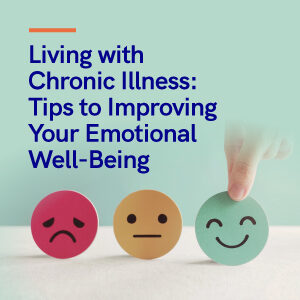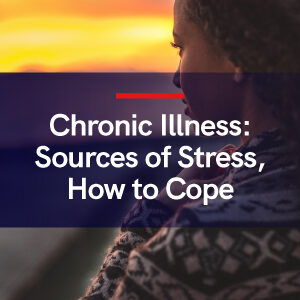Creating community during a pandemic is especially challenging. But, the one thing all humans have in common is the desire for connection. We want to feel seen, cared for, acknowledged, and if we can even accomplish a sense of shared experience- that’s icing on the cake. As actor and vlogger Damian Washington puts it, “even if we don’t all have the same symptoms, I know you know me because we know the similarities of this disease. And that means I can be fully me when I meet someone else with MS, even if we’ve never met before.”
Living with chronic illness means we live differently, there are no two ways about. I don’t say this as a way to say “poor us.” I never feed victim consciousness and neither should you. All I’m doing is calling a spade a spade: it’s different. You have to plan differently, you weigh things differently when making a decision, and you don’t share the same physical experience as healthy people. Many more people are living with chronic illness than we realize though and it’s helpful to connect with people who can relate, especially if it can help normalize the experience in realizing you are not alone. Having a community, or even one other person who can share your experience can be super healthy. But before I talk about why it’s so important, let’s acknowledge the downsides that so many people experience when they seek support.
Support groups are really hit or miss. Many patients feel depressed attending support groups. Some of my clients have expressed to me that it has scared them to see how bad their illness might get. Others have expressed that it’s a whine fest rather than support for each other in a way that is uplifting. It’s crucial that reaching out for support or creating your community is done in a healthy way. Healthy community aims to support those who are currently facing a tougher time without all jumping on the “everything is horrible right now” bandwagon. Community provides helpful suggestions, shares practical advice based on past experience, and celebrates your wins.
In these COVID times, I still encourage everyone to find a community around their illness and the right kind. It’s even more important now that so many people are staying home. You need contact with others you can relate to.
Before you set out on the suggestions below, just accept that it might take a few tries to find the right fit for you. That way you won’t be disappointed or discouraged if the first thing you try isn’t uplifting or the vibe you were hoping for. It may take a little trial and error to find something that feels aligned for you.
Avenues for finding healthy community:
Support Groups
If there are organizations that support research and patient services for your illness, reach out to see if they have support groups that might be meeting on Zoom. Examples are the National MS Society or the Sickle Cell Disease Association of America. Even if the organization doesn’t have a chapter in your area, they might still have information about local support groups. Even though these groups are currently meeting on Zoom, it’s good to find something local so that when we are able to meet in person, you will have local support and some positive motivation to get out of the house.
Online Forums
Many disease categories have online communities. As a Patient Advocate for MS, I know MS World is a great forum with active participants from all over the world and you can connect with others according to topic. Many resources like this exist for different diagnoses such as www.livingwithfibro.org for people with Fibromyalgia. It’s great to be able to ask questions of others who have already been down the same road.
Social Media
This is by far the most effective and recommended avenue for creating community during this time. Instagram is the best platform for this, but all social media platforms are great for connecting with others facing your illness. Again, it’s just as important here to be mindful that you are connecting with positive and uplifting people. Start by searching for a hashtag related to your diagnosis. Take a look at some of the most popular accounts and simply read the other hashtags they use. Look for buzzwords like: #resilience, #cantstopme, #advocate (especially your diagnosis with advocate such as #msadvocate), #activist, #nevergiveup, #motivation, #hope, #warrior, etc. Even if you don’t feel comfortable posting about your own journey, it can be really helpful to see that you are not alone. Many of the most popular accounts are people who are open to talking one-on-one and will respond to your DMs.
If Facebook is where you prefer to interact, search for names of groups that fit your diagnosis and ideally a name that sounds uplifting. Notice which groups have rules and the types of rules- those will usually be more supportive and have better infrastructure in place. Remember you are looking for a place to build community, not a space for everyone to come and complain.
In short, it is always important to develop community so that you can connect with others who “get it” and to know that you are not alone. But it’s important that the people you surround yourself with help you and vice versa. The interaction needs to be something that lifts you up rather than one more reminder of disease…you have plenty of that every day. Just because someone shares your diagnosis does not mean they are going to be aligned with your values or perspective. It is out there though and I encourage you to take the steps to find or create it. Creating community during the pandemic may be challenging, but it will be worth it! Sanguine is also going to be exploring ways to create community for its patient community. In the meantime, know that you are not alone and that I’m cheering you on!




